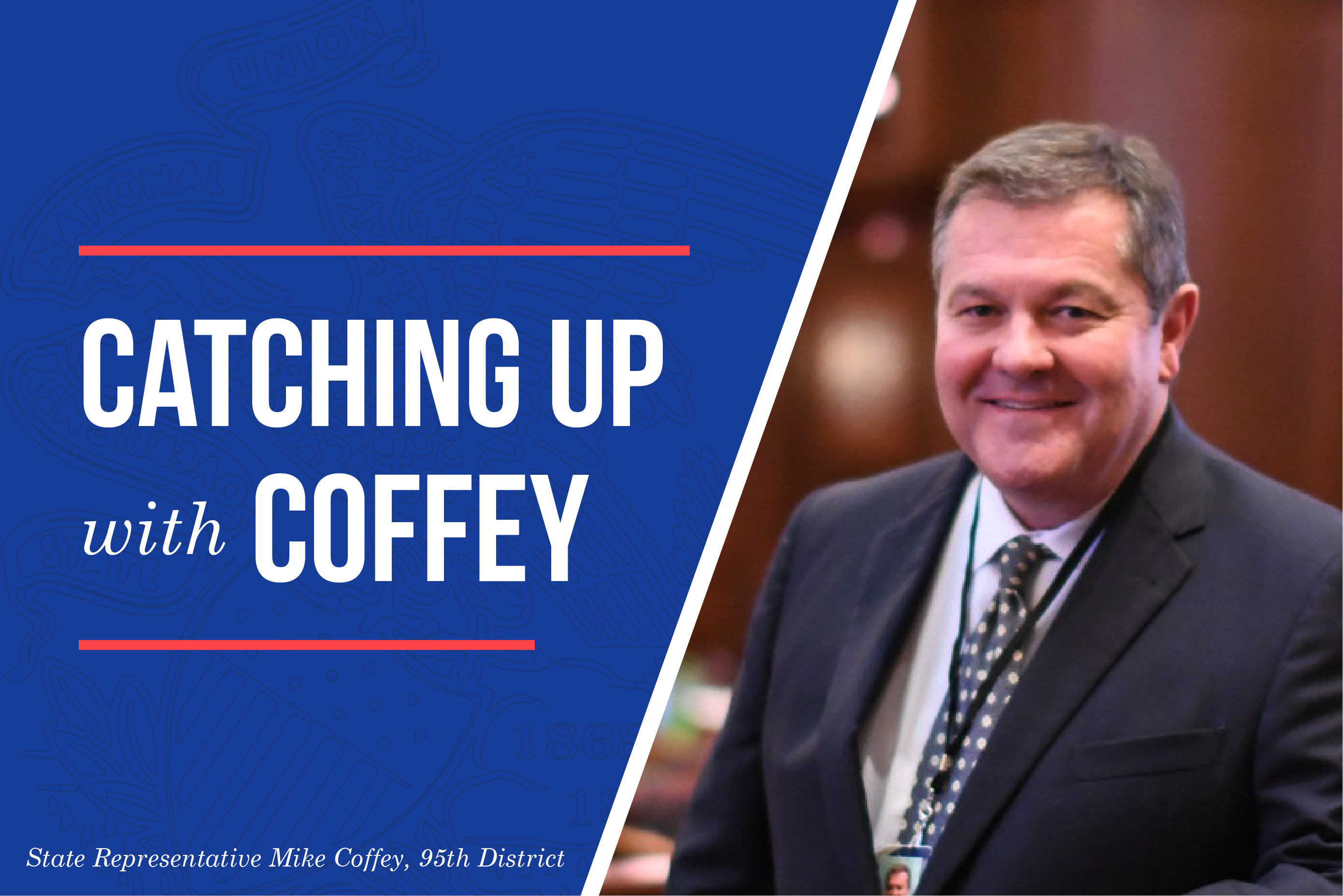Keeping you caught up with issues impacting our state and our community.
BUDGET
Governor JB Pritzker delivered his annual State of the State and Budget Address to a joint session of the Illinois General Assembly in Springfield Wednesday.
The Governor’s introduced Fiscal Year 2024 budget includes a $49.64 billion proposed spending plan, which is a net $2.75 billion increase over FY23 and represents a 7.9% spending increase.
FIREARMS
The new controversial gun ban law purports to ban, or heavily regulate, a long list of so-called “assault weapons,” firearm fittings, and extended magazines. Several of the sections of the controversial law go into extreme detail to describe specific types of objects to be banned or regulated, while being quite vague about other classes of objects.
It was this disparity between detail and vagueness that drew the attention this week of federal Judge Stephen McGlynn of the Southern District of Illinois. In an order that applied to three separate federal lawsuits filed against the Illinois gun ban law, Judge McGlynn ordered the State of Illinois – which as the party that enacted the law and is defending it in court, is the defendant of record – to provide “illustrative examples of each and every item banned” under the new law. The phrase “each and every item” was taken by observers of these cases as a sign that the judge was looking with skepticism against the vaguer sections of the Illinois gun ban law. “Unconstitutional vagueness” is a legal term that describes one of many pathways that can be taken by a federal court when striking down an unconstitutional law. Judge McGlynn issued his order on Monday, February 13.
JOBS
Moody’s Analytics releases Year 2023 economic report with downbeat aspects. The Commission on Government Forecasting and Accountability (CGFA) contracts with economic database firm Moody’s Analytics to survey current numbers and trends generated by the Illinois economy as a whole. These trend lines can be significant in developing a picture of the future economic prospects of the State of Illinois, including during the approaching Fiscal Year 2024 (FY24) and the out-years to follow it.
An economic crash took place in Illinois in March 2020. It was associated with the COVID-19 pandemic and private-sector shutdown orders. This crash was followed by a relatively powerful economic recovery that made back most of the lost ground. Some sectors of the Illinois economy are now in better shape than they were in February 2020, before the crash. However, Moody’s analysts are starting to see storm clouds on the horizon which they would like the General Assembly to look at. One of the data sets used by Moody’s Analytics is a regular, repeated household survey of employment. This is a granular, household-oriented survey of who is working full-time and part-time. Moody’s sees the results of this Illinois survey as “downbeat,” noting that fewer Illinois residents are getting jobs than are residents of other states. These job numbers signal that future Illinois income tax payments and sales tax receipts could generate disappointing numbers, based on lower-than-expected numbers of Illinoisans who are collecting paychecks and using household cash flow to make essential purchases.
SENIORS
The Illinois Department of Revenue (IDOR) has reminded senior citizens about the availability of the Senior Citizens Real Estate Tax Deferral Program which allows qualified seniors to defer all or part of their property taxes and special assessment payments on their principal residences. Seniors needing assistance paying their property taxes have until March 1, 2023 to apply for the program.
The program, which works like a loan, allows qualified seniors to defer a maximum of $7,500 per tax year (including both first and second installment payments), increased from $5,000 last year. Deferred amounts are borrowed from the state, who pays the tax bill to the County Collector’s Office. The program was also expanded this year to increase the household income threshold qualification from $55,000 to $65,000.
Interest on the amount paid by the state accumulates and a lien is placed on the property for all deferred tax payments and interest, payable upon death of the homeowner, at the time the home is transferred to a new owner, or sooner, if the program participant chooses to pay off the deferred tax payments and interest.
To apply for the program, seniors need to contact their local County Collector’s Office to receive an application. Once completed, the application must be filed with the Collector’s Office on or before March 1 of each year they wish to defer their property taxes or special assessments.
For general questions concerning the program, taxpayers may visit IDOR’s website at tax.illinois.gov or contact their local County Collector’s Office.
